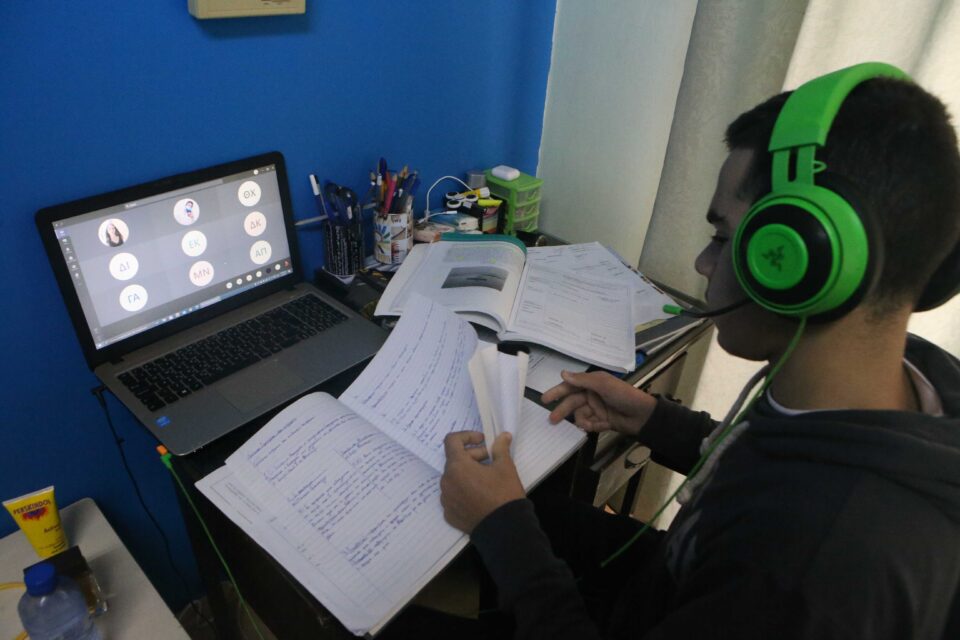Support for the government has dropped by almost half in the past year as more people in Cyprus report that they’ve lost their jobs permanently and around 62 per cent are finding it hard to make ends meet every month, according to an EU survey released on Thursday.
It warned that rising inequality and fatigue could lead to instability if more is not done to help Europeans.
The survey by Eurofound, the EU agency for improving living and working conditions, showed that citizens in 26 of the 27 EU countries had less faith in their national governments than when Covid-19 lockdowns began in March last year.
The study designed to shed light on the social and economic situation of people across Europe following nearly a full year of living with restrictions found that trust in the bloc itself was generally higher than for national governments, even after sharp criticism of the executive European Commission over delays to Covid-19 vaccine procurement and delivery.
According to the findings, most people in Europe are by now sick of online schooling, remote working, and more and more are suffering from depression, especially in younger age groups. Eurofound said the survey was based on three rounds of polling based on an overall sample of 138,629 people.
After improving last summer when the bloc approved its multi-billion-euro recovery plan, trust in the EU as an organisation fell slightly in February and March this year from a year earlier.
Most recently, it added, people in Cyprus, Bulgaria, Croatia, the Czech Republic, Greece and Poland registered much lower support for their governments than a year ago, but the study confirmed a historical trend that Europeans trust the EU as an organisation more than their national governments.
According to the figures, the Cyprus government had a trust rating of 5.5 out of a possible 8 in spring 2020. By summer it had fallen to 5 and by March this year it was down to 3 out of 8, while among Cypriots, trust in the EU stood at 4 out of 8, down from 5 a year ago.
During a study this time last year, it showed that 60 per cent of people in Cyprus said they had difficulty making ends meet. This dropped to around 48 per cent over the summer but had risen to around 62 per cent by March.
In spring 2021, more respondents across the bloc reported they were behind with their utility bills and with telephone, mobile and internet payments than in summer 2020.
On top of that, in Cyprus, 18 per cent of people who had been working pre-pandemic now say they had lost their jobs permanently, compared with 14 per cent this time last year and only 7 per cent during the summer.
It also said that mental well-being had reached its lowest level across all age groups since the onset of the restrictions.
“This is especially prominent among young people and those who have lost their job,” it said. “Almost two-thirds of people (64 per cent) in the youngest age group 18–34 are at risk of depression,” it added. There was an overall increase in negative feelings among the general population, such as tension, anxiety, loneliness, feeling downhearted and depressed, across most social groups in the EU, the study said.
EU citizens’ satisfaction with crisis support measures has also declined dramatically, with only 12 per cent now feeling support measures are fair, down from 22 per cent in summer 2020. In Cyprus only 15 per cent believe the support measures are fair and less than that think obtaining support was easy and efficient.
The study also touched on teleworking, which has become much less prevalent in 2021 than the tougher lockdowns a year ago. “The proportion of people who worked exclusively from the employer’s premises increased in most countries, especially in Denmark (from 41 per cent to 66 per cent and Cyprus (from 43 per cent to 67 per cent,” the study said.
European parents are also fed up with remote learning. While in mid-2020, some 29 per cent of parents said they were satisfied with online schooling, this has now decreased to 26 per cent.
“Parents were less likely to agree that online schooling was a positive experience for their children (30 per cent in 2020 compared with 24 per cent in 2021) and for them as parents (25 per cent compared with 20 per cent), particularly for women working exclusively from home (from 29 per cent to 21 per cent),” the study said. By spring 2021, only 16 per cent of parents said they would like more online schooling in the future for their children.
“Fourteen months after the first Covid-19 cases appeared in the EU, with most of the countries still going through long lockdowns, the population of Europe is showing palpable signs of extreme fatigue,” the study said.
“Failing to prevent the rise of economic and social inequalities among citizens and member states risks … triggering political discontent against the European social contract that binds all of us together.”







Click here to change your cookie preferences